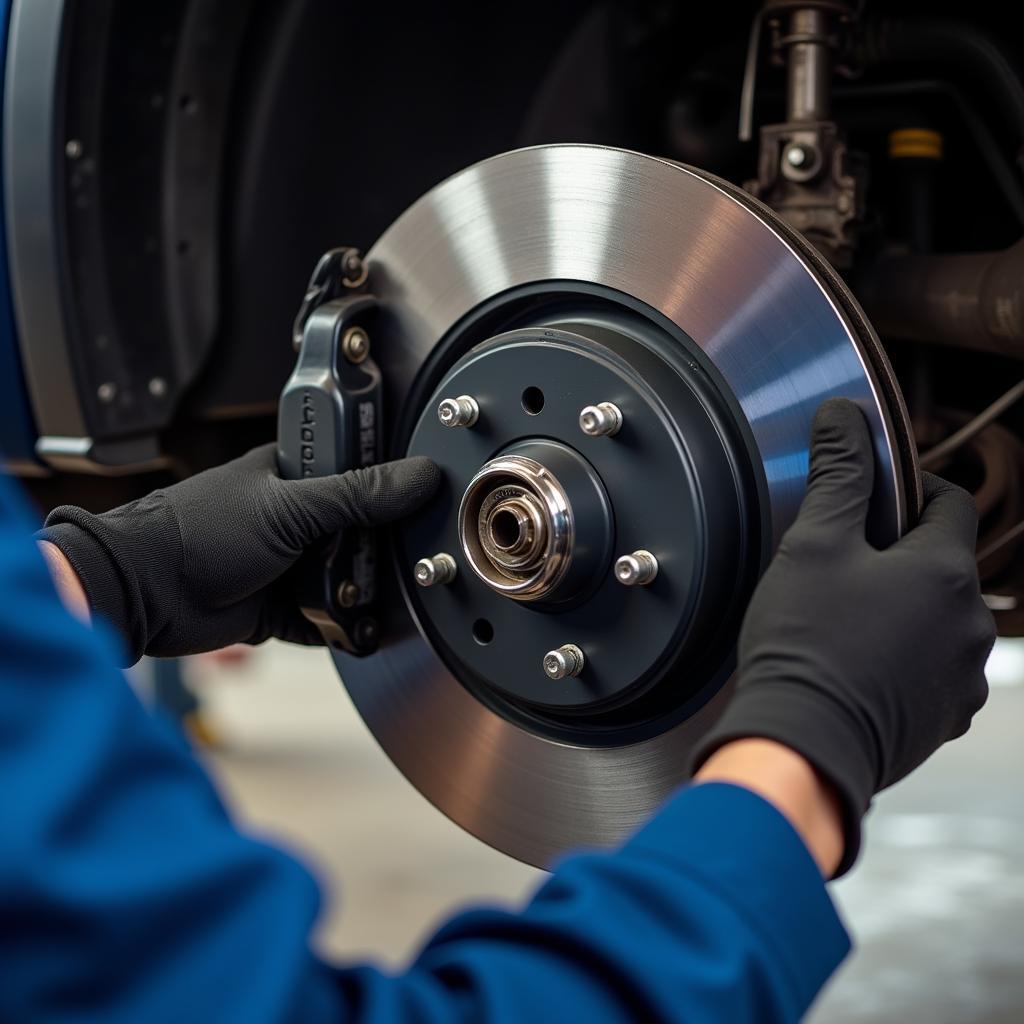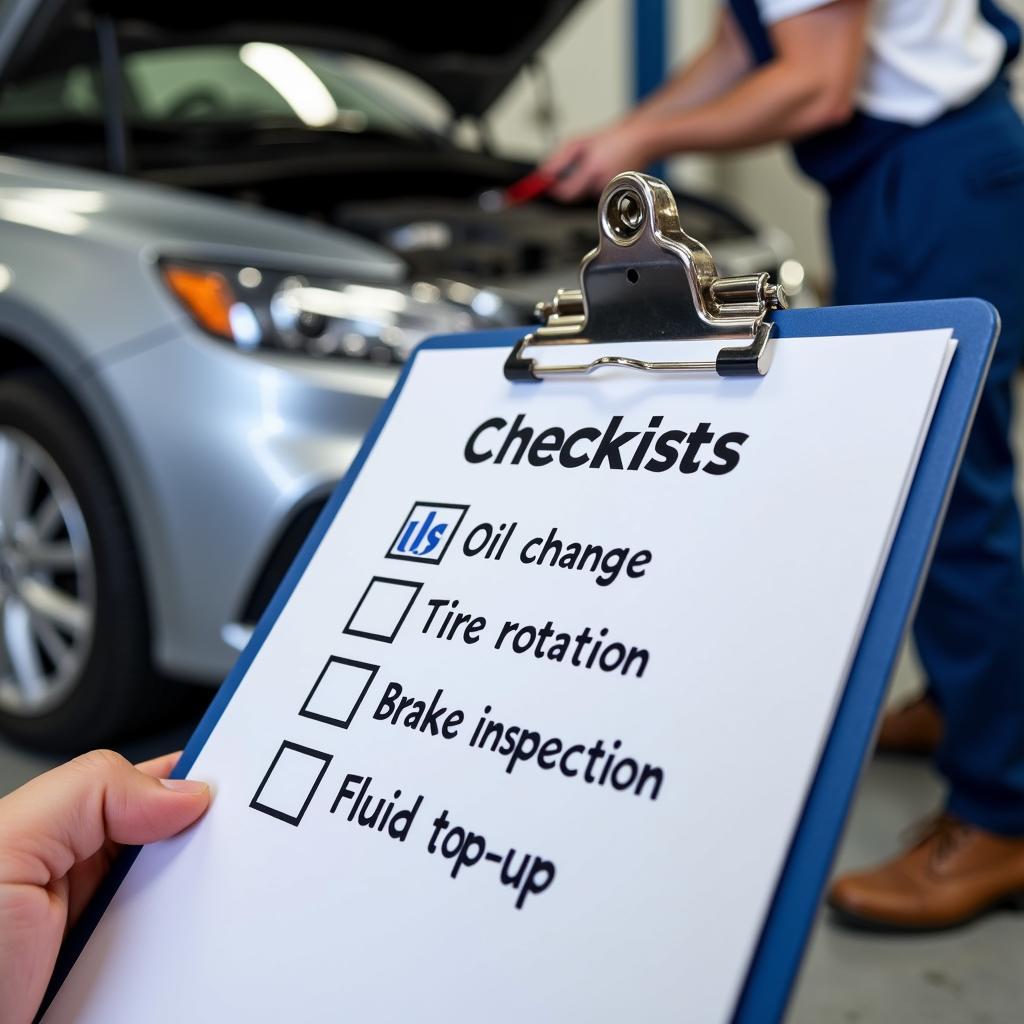What Kind of Car Service Do I Need?
Owning a car can be a wonderful thing – the freedom of the open road, the convenience of going wherever you want, whenever you want. But like all machines, cars need regular upkeep to stay in tip-top shape. Determining “What Kind Of Car Service Do I Need” can seem daunting, especially with so many options available. This guide is here to demystify car maintenance and help you make the best choice for your vehicle.
Understanding Your Car’s Needs
Before diving into the different types of car service, it’s crucial to understand your car’s specific needs. These needs depend on several factors:
- Make and Model: Different car manufacturers have different service schedules. Your owner’s manual is your best friend here, providing a detailed outline of recommended maintenance based on your car’s make and model.
- Mileage: The more miles you rack up, the more wear and tear your car experiences. Higher mileage often necessitates more frequent and extensive servicing.
- Driving Conditions: Frequent stop-and-go city driving puts more stress on your car than highway driving. Similarly, extreme weather conditions can impact various components, requiring adjusted service schedules.
Types of Car Service
Now that you have a better understanding of what influences your car’s needs, let’s break down the most common types of car service:
1. Routine Maintenance
This is the bread and butter of car care, ensuring your vehicle runs smoothly and potential problems are caught early. Routine maintenance typically includes:
- Oil Change: Regular oil changes (every 3,000-5,000 miles or as recommended by your manufacturer) are crucial for lubricating your engine and preventing excessive wear.
- Filter Changes: This includes your engine air filter, cabin air filter, and fuel filter. Replacing these filters helps maintain optimal airflow and fuel efficiency.
- Tire Rotation and Pressure Check: Rotating your tires ensures even wear and extends their lifespan. Proper tire pressure is vital for fuel efficiency and safe handling.
- Fluid Top-offs: This includes checking and topping off essential fluids like coolant, brake fluid, power steering fluid, and windshield wiper fluid.
2. Scheduled Maintenance
Beyond routine maintenance, your car requires more comprehensive service at specific mileage intervals. Refer to your owner’s manual for your car’s recommended schedule, but common services include:
- Spark Plug Replacement: Worn spark plugs can lead to reduced fuel economy and engine performance issues.
- Brake Pad/Rotor Replacement: Brakes are critical for safety. Regular inspection and timely replacement of brake pads and rotors are essential.
- Timing Belt/Chain Replacement: This is a crucial service, as a broken timing belt or chain can cause catastrophic engine damage.
- Coolant Flush: Over time, coolant can become acidic and lose its effectiveness. A coolant flush helps prevent corrosion and overheating.
 Car Brake Inspection
Car Brake Inspection
3. Repair Services
While routine and scheduled maintenance are preventative measures, repair services address specific issues that arise. These can range from minor to major repairs and include:
- Engine Repair: From minor issues like a faulty sensor to major overhauls, engine repairs can be complex and costly.
- Transmission Repair: The transmission is responsible for shifting gears. Problems here can affect your car’s drivability.
- Electrical System Repair: Modern cars are increasingly reliant on complex electrical systems. Issues with wiring, sensors, or the battery can lead to a range of problems.
- Suspension and Steering Repair: These systems ensure a smooth and controlled ride. Problems here can manifest as noises, vibrations, or uneven tire wear.
- Exhaust System Repair: The exhaust system routes exhaust fumes away from the engine. Leaks or damage can affect performance and emissions.
“Ignoring routine car maintenance,” says John Smith, a seasoned mechanic at ABC Auto Repair, “is like neglecting regular doctor’s visits. It might seem okay in the short term, but it can lead to more significant, costlier problems down the road.”
Determining the Right Car Service for You
With so many service types, how do you know what your car needs at any given time?
- Consult Your Owner’s Manual: This is your go-to resource for manufacturer-recommended maintenance schedules and guidelines.
- Pay Attention to Warning Signs: Unusual noises, vibrations, warning lights on your dashboard, or changes in your car’s performance are all signs that it might be time for a service.
- Regular Check-Ups: Even if you’re not experiencing any issues, getting your car checked by a trusted mechanic at least once a year is a good preventative measure.
Conclusion
Understanding what kind of car service you need doesn’t have to be complicated. By following your car manufacturer’s recommendations, paying attention to your car’s behavior, and seeking expert advice when needed, you can keep your car running smoothly for years to come. Regular car maintenance not only ensures optimal performance and safety but can also save you money in the long run by preventing major repairs and extending the lifespan of your vehicle.
FAQs
1. How often should I get an oil change?
Most manufacturers recommend an oil change every 3,000-5,000 miles. However, refer to your owner’s manual for specific guidelines.
2. What does a “check engine” light mean?
A “check engine” light can indicate a range of issues, from a loose gas cap to a more serious engine problem. It’s best to get it diagnosed by a mechanic as soon as possible.
3. Can I do some car maintenance myself?
Yes, there are some basic maintenance tasks you can perform yourself, such as checking and topping off fluids, changing your air filter, or checking tire pressure. However, for more complex tasks, it’s best to consult a qualified mechanic.
4. How do I find a reliable car mechanic?
Ask for recommendations from friends, family, or online reviews. Look for mechanics who are certified and experienced in working with your car’s make and model.
5. How much does car servicing cost?
The cost of car servicing varies depending on the type of service, your car’s make and model, and the labor rates in your area. Routine maintenance tends to be more affordable than major repairs.
6. Can I extend the life of my car with regular servicing?
Absolutely! Regular car servicing helps identify and address potential problems early on, preventing further damage and extending the life of your vehicle.
7. What are some signs that my car needs immediate attention?
If your car is making strange noises, leaking fluids, vibrating excessively, or if any warning lights on your dashboard are illuminated, it’s crucial to seek immediate attention from a qualified mechanic.
Need help deciding on the right car service? Contact our team of experts via WhatsApp: +1(641)206-8880 or Email: [email protected]. We offer 24/7 support and can connect you with trusted car service providers in your area. For more information on specific car maintenance topics, check out our other informative articles: must-have customer care service agents, are diesel cars more expensive to service, how to check car service history australia, how to service a dead car battery, who charges the most for car service.

